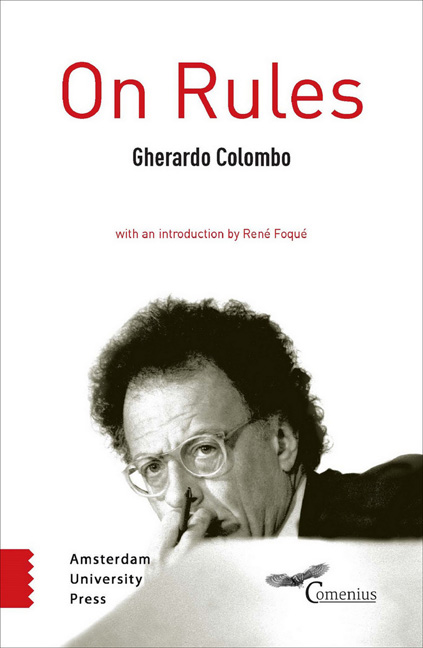Book contents
- Frontmatter
- Introduction: Gherardo Colombo’s Concern for the Democratic State under the Rule of Law: A Work in Progress
- Why?
- 1 An Imaginary Country
- Contents
- Part I The Ambiguities of Justice
- Part II Horizontal Society and Vertical Society
- Part III Towards a Horizontal Society
- Part IV How Do We Get There?
- Conclusion
- Acknowledgments
- Frontmatter
- Introduction: Gherardo Colombo’s Concern for the Democratic State under the Rule of Law: A Work in Progress
- Why?
- 1 An Imaginary Country
- Contents
- Part I The Ambiguities of Justice
- Part II Horizontal Society and Vertical Society
- Part III Towards a Horizontal Society
- Part IV How Do We Get There?
- Conclusion
- Acknowledgments
Summary
For many, abandoning the vertical model is not compatible with human nature, and is, at best, utopian. For the reasons explained in the previous pages, reasons which have to do with history, religion, and the instincts of individuals, the vertical model is so deeply ingrained that it appears ‘natural’, and hence ‘just’.
This is a cultural attitude, the same as that which caused torture to appear ‘just’ some decades before Cesare Beccaria's writings were published.
Because this attitude is widespread, it is also shared by many who do not occupy high places in the social hierarchy, especially when they exercise some sort of power, even a modicum of it, on those yet below them (for instance, on irregular foreigners, but also by husbands on wives who have no income of their own). Sometimes this attitude may even be shared by the ‘victims’ themselves.
The order of things that everyone already finds pre-established, coupled with the need for security, the glorification of sacrifice for the common good, a spontaneous tendency towards submission, and several other factors, leads many to perceive as ‘just’ the existence of a hierarchy of rights and duties – the fact that someone is in command and others have to obey.
Thus it sometimes happens that the formal system is organised horizontally, that written laws recognise fundamental rights and equality, but at the same time there exists a submerged order, with rules which contradict the ‘official’ ones, and whose repercussions affect all citizens, ultimately turning the horizontal organisation into a vertical one.
The existence of this phenomenon can sometimes be deduced from a few ‘circumstantial’ elements. Negligence in the prevention of industrial accidents (which in Italy account for over 1000 ‘white deaths’ per year) is an indicator of the faltering recognition and protection of the right to life and physical integrity for workers, and of the predominance of a submerged rule that gives priority to entrepreneur profit.
Sometimes the visible signs of this double standard, and of the predominance of the submerged one, are blatant. In the early 1990s in Italy, a veritable, pervasive system of corruption was unearthed connecting business and political parties.
- Type
- Chapter
- Information
- On Rules , pp. 119 - 123Publisher: Amsterdam University PressPrint publication year: 2016



